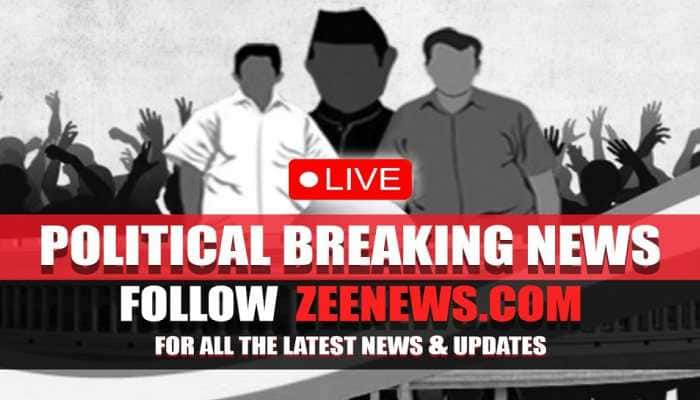Worldwide Insights: How Politics Shape International Relations

In an increasingly interconnected world, the dynamics of political systems continue to shape communities in significant manners. While we look toward the upcoming times, it's essential to grasp how political actions and choices influence not only domestic landscapes but also global relations. With the countdown to the 2025 election intensifying, a varied range of concerns has taken center stage, from the emergence of independent candidates to the effect of youth voting. This new political era prompts us to ask: what does the changing political landscape imply about our democracy?
As debates around crucial topics like climate change, foreign policy, and the reliability of our election systems gain momentum, citizens are growing more engaged than ever. Amid swirling rumors of impeachment, ongoing battles over gerrymandering, and the ever-present threat of misinformation, the political sphere is anything but stagnant. Each of these elements contributes to the larger narrative, revealing the intricacies of government and the power plays at work within institutions like Congress and the Supreme Court. In this exploration, we will examine the factors shaping our political reality, analyzing how they might influence the society we live in today and tomorrow.
The Emergence of Independent Candidates
The political scene in the America has experienced a significant shift as independent voters emerge as a powerful presence. In recent elections, a growing proportion of voters are identifying with independence, marking a move away from established two-party hegemony. This development suggests that many citizens are looking for alternatives to established parties, often feeling disappointed by partisan politics and looking for candidates who resonate with their principles without strict alignment to main platforms.
As we get closer to the 2025 elections, the growth of independent voters poses both obstacles and opportunities for political strategists. Political campaigns must navigate this new environment by catering to a varied electorate that appreciates practical solutions over ideological purity. The independent voters' influence can influence key elections, particularly in battleground states where their votes can make all the difference. Candidates are progressively adapting their messages to engage these voters, emphasizing concerns that go beyond party lines, such as medical care, job creation, and environmental initiatives.
Moreover, the rising presence of independent candidates in various races is transforming traditional campaign strategies. These individuals often take advantage on voter exhaustion with conventional party politics, presenting their candidacies as innovative alternatives. As their visibility increases, independents not only contest incumbents but also inspire mainstream parties to reconsider their platforms. This change has the capacity to spark a larger conversation about what it means to speak for the voting public in an ever more divided environment, eventually redefining the norms of politics of interaction.
Twenty Twenty-Five Election Trends
As the countdown to the 2025 elections begins, the political landscape is changing in manner that could reshape long-established party structures. The rise of nonpartisan candidates is noteworthy, as disillusionment with the bipartisan system prompts voters to look for different choices. This movement signals a possible turning point, where independents might also influence the overall elections but also redefine the current discussion around policy and representation issues. With issues like environmental concerns and economic disparity at the center, understanding the driving factors behind this electorate will be essential for all stakeholders.
Young engagement is another vital component of the upcoming vote. With younger generations more and more taking an active role in politics, their voting power may serve as a significant factor in 2025. Politicians will need to prioritize issues that appeal with this group, such as climate action and equity, to gain their support. The formation of new alliances, especially among younger politicians and voters, suggests a new energy in advocacy efforts that could disrupt established norms.
Yet, as excitement builds around the potential for transformation, the shadow of fake news lingers large. As https://output.jsbin.com/qepetorema/ develop their plans, the battle against misleading information and disinformation will be paramount. With heightened fears of election interference resurfacing, ensuring the integrity of the vote will stay a focal point for candidates and their teams. As The original source observe these developments unfold, it becomes apparent that the Twenty Twenty-Five vote will not just be a battle for office but also an important opportunity for the trajectory of democracy overall.
Risks to Democratic Systems
In lately, the integrity of democracy has come under increasing scrutiny. Issues have grown over the rise of autocratic rule and populist movements, as leaders in different countries manipulate political cleavages to attenuate democratic norms. The weaponization of disinformation has further obscured the landscape, making it difficult for citizens to tell fact from fiction. As elections approach, these strategies have the ability to weaken trust in electoral mechanisms, leading to diminished voter participation and a growing cynicism towards governmental institutions.
In the U.S., the Supreme Court's upcoming judgments will play a vital role in shaping the future of democratic rights. Issues such as redistricting, voting rights, and campaign finance laws are essential. The possibility for the Court to rule in ways that favor one political ideology over another raises alarm bells for advocates of equitable representation. As the legal landscape shifts, it is essential for citizens to remain alert and engaged, ensuring that their voices are considered in the face of possible injustices.
Furthermore, the rising influence of money in politics, particularly through super PACs, adds another layer of challenge to the democratic process. As corporate interests and wealthy donors gain more influence, there is a risk that the average voter may feel excluded. This growing disparity can foster dissatisfaction among constituents who see their needs ignored in favor of those with greater wealth. Ultimately, the health of democracy depends on a dedicated electorate that actively participates in governance and holds leaders responsible for their actions.

